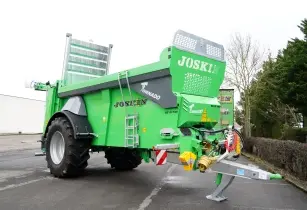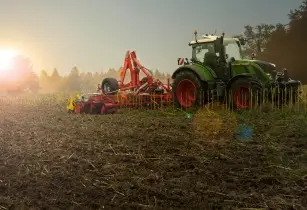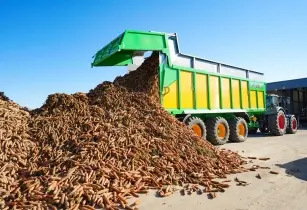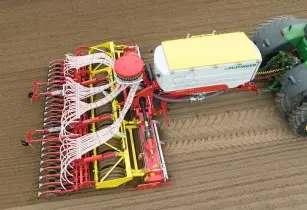As one of the best sellers in the JOSKIN muck spreader range, the new generation Tornado has been given a number of improvements, as well as an upgraded design
Machinery & Equipment
Pöttinger’s TERRADISC T can now be equipped with knife roller from 4 to 6 m
The TERRADISC 4001 T, 5001 T and 6001 T trailed compact disc harrow made by the arable farming professionals at Pöttinger can now be combined with a front knife roller
How JOSKIN’s multi-talented Drakkar transformed the world of agricultural transport
In 2011, the Belgian agricultural machinery manufacturer JOSKIN presented a completely new machine concept that revolutionised the world of agricultural transport: the Drakkar
Cyber threats pose potential risks to food security in Africa
Although smart technology is increasingly being used to make agriculture more efficient, there are risks when it comes to minimising human involvement and ignoring the potential of cyber attacks
Combining flexibility and efficiency: Pöttinger’s latest AEROSEM VT 6000 DD has it all
Following the great success of the AEROSEM VT trailed pneumatic seed drills with a working width of 5 m, Pöttinger is now launching this combination with a working width of 6 m









